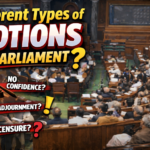SC quashes sedition case against journalist: Basics Explained

The Supreme Court Thursday quashed the sedition case registered against journalist Vinod Dua.
On the issue of protection of freedom of speech and expression of media personnel, it said, “Every journalist is entitled to protection under the Kedar Nath Singh judgment (the famous verdict of 1962 on the scope and ambit of offence of sedition in the IPC).”
While upholding validity of section 124A (sedition) of the IPC, the top court in 1962 had ruled the sedition charges could not be invoked against a citizen for criticism of government actions as it would be in conformity with the freedom of speech and expression.
LEARNING FROM HOME/ FROM CLASSES/ BASICS
Section 124-A of the Indian Penal Code (IPC)
- It defines sedition as an offence committed when “any person by words, either spoken or written, or by signs, or by visible representation, or otherwise, brings or attempts to bring into hatred or contempt, or excites or attempts to excite disaffection towards the government established by law in India”.
- Disaffection includes disloyalty and all feelings of enmity. However, comments without exciting or attempting to excite hatred, contempt or disaffection, will not constitute an offence under this section.
Sedition is a non-bailable offence. Punishment under the Section 124A ranges from imprisonment up to three years to a life term, to which fine may be added.
Mahatma Gandhi during freedom struggle labelled the sedition law
“the prince among the political sections of the Indian Penal Code designed to suppress the liberty of the citizen”
The Supreme Court in the Kedar Nath Singh v State of Bihar Verdict (1962)
circumscribed the application of the law to
“acts involving intention or tendency to create disorder, or disturbance of law and order, or incitement to violence.”
It even specifically narrowed down its scope in order to protect dissent, saying,
“comments, however strongly worded, expressing disapprobation of actions of the Government, without exciting those feelings which generate the inclination to cause public disorder by acts of violence” wasn’t sedition.
The ruling established that the charge of sedition can only be sustained in the instance of incitement to violence in a speech, not for advocacy. Sedition no longer means merely exciting “disaffection” against the government.
Article 19 in The Constitution Of India
The idea behind this article is to give voice to the Indian citizen the license to express thoughts with some reasonable restrictions.
The principle behind freedom of speech and expressions is as under:
- Only the Indian citizen has the liberty to enjoy this right, the right isn’t given any foreign citizen.
- This right gives liberty to express one’s view through any medium e.g.:-by words in writing speaking, in pictures etc.
- Since the freedom of speech and expression is not an absolute right, the government is given powers to frames law for and against it
- Protection of certain rights regarding freedom of speech etc
(1) All citizens shall have the right
(a) to freedom of speech and expression;
(b) to assemble peaceably and without arms;
(c) to form associations or unions;
(d) to move freely throughout the territory of India;
(e) to reside and settle in any part of the territory of India; and
(f) omitted
(g) to practise any profession, or to carry on any occupation, trade or business
(2) Imposes reasonable restrictions on the exercise of the right conferred by the said sub clause in the interests of the sovereignty and integrity of India, the security of the State, friendly relations with foreign States, public order, decency or morality or in relation to contempt of court, defamation or incitement to an offence
Although Article 19 does not express provision for freedom of protest but the fundamental right of the freedom of protest implicit in the right the freedom of speech and expression.




0 Comments